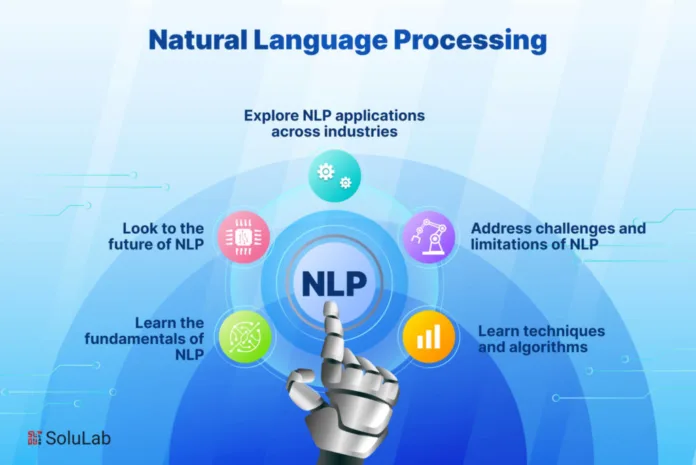
In today’s digital age, Natural Language Processing (NLP) has emerged as one of the most transformative technologies shaping the way humans interact with machines. From voice assistants to chatbots and predictive text to sentiment analysis, NLP has become the backbone of AI-powered communication. Whether you’re sending an email or asking Alexa for the weather, NLP is working behind the scenes to understand, interpret, and respond to human language.
What is Natural Language Processing?
Natural Language Processing is a subfield of artificial intelligence that focuses on the interaction between computers and human language. It enables machines to comprehend, interpret, and generate human language in a way that is both meaningful and useful. NLP bridges the gap between human communication and digital data processing by transforming unstructured text into a format that machines can understand and analyze.
The Evolution of NLP Technology
NLP has come a long way since its early days of rule-based algorithms. Thanks to advances in machine learning, deep learning, and neural networks, modern NLP systems are more accurate and context-aware than ever. Early systems struggled with ambiguity and grammar, but today’s models can understand tone, sentiment, intent, and even sarcasm.
This evolution is what has enabled NLP applications to power everything from customer support chatbots to translation tools and even virtual health assistants.
Key Applications of NLP in Modern Communication
Chatbots and Virtual Assistants
Businesses increasingly rely on NLP to power chatbots and voice assistants like Siri, Alexa, and Google Assistant. These systems interpret spoken or typed commands and provide relevant responses, enabling seamless human-computer interaction.Sentiment Analysis
Companies use NLP to analyze customer feedback on social media, reviews, and surveys. Text analytics tools powered by NLP help organizations understand public sentiment and adjust their strategies accordingly.Email Filtering and Predictive Text
NLP is the driving force behind spam filters, email auto-categorization, and predictive text systems in smartphones and email platforms. These features streamline communication by prioritizing important messages and speeding up text input.Language Translation
NLP enables real-time language translation through services like Google Translate. It breaks down language barriers, making global communication easier and more effective.Healthcare and Legal Tech
NLP helps professionals in healthcare extract insights from medical records and patient data, while in legal tech, it assists in document analysis and contract review.
NLP and the Business World
In business, AI-powered communication is revolutionizing operations. NLP-driven systems can generate reports, summarize meetings, and even interact with customers 24/7. This saves time, reduces operational costs, and enhances customer experience.
Moreover, NLP plays a critical role in customer relationship management (CRM) by enabling automated responses, tracking sentiment, and analyzing customer behavior.
Challenges Facing NLP
Despite its many benefits, Natural Language Processing still faces several hurdles:
Context Understanding: Sarcasm, slang, and idioms are still difficult for machines to interpret accurately.
Multilingual Complexity: Supporting diverse languages with the same accuracy remains a challenge.
Data Privacy: NLP systems often rely on large datasets, raising concerns about data security and ethical use.
The Future of NLP
The future of Natural Language Processing is promising. As models become more sophisticated, NLP will enable even more natural interactions between humans and machines. Advances in machine learning will allow systems to better understand nuances and context, creating a more human-like conversational experience.
We can also expect NLP to play a larger role in sectors like education, where personalized learning assistants may soon become the norm, and in law enforcement, where analyzing written and spoken language can assist investigations.
Conclusion
Natural Language Processing is no longer a futuristic concept; it’s already reshaping how we interact with technology and each other. From business automation to real-time translation and personal assistants, NLP is transforming communication as we know it. As the technology continues to mature, its applications will expand further, making communication smarter, faster, and more intuitive.